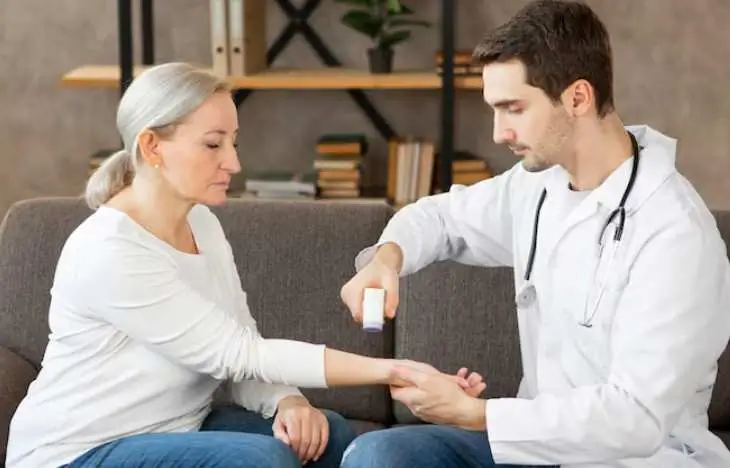Hormones play a vital role in regulating nearly every function in the human body, from metabolism and mood to fertility and energy levels. When hormones are out of balance, even slightly, women can experience a wide range of disruptive symptoms. Understanding the causes, signs and treatment options for hormonal imbalance is crucial for maintaining long-term health and quality of life.
In this blog, we’ll explore what hormone imbalance in women really means, how to identify it, and the best approaches for treatment—whether you’re searching for a naturopath for hormone imbalance near me, a gynecologist specializing in hormone imbalance near me, or a hormone imbalance doctor near me.
What is Hormonal Imbalance?
A hormonal imbalance occurs when the body produces too much or too little of certain hormones. These chemical messengers are secreted by glands such as the thyroid, ovaries, pancreas, and adrenal glands. Even small fluctuations can cause significant changes in how the body feels and functions.
For women, hormone fluctuations are normal during puberty, menstruation, pregnancy, and menopause. However, when persistent or severe imbalances occur, they may signal an underlying condition that requires medical attention.
Causes of Hormonal Imbalance in Women
There are many possible reasons behind hormone imbalance in women. Some of the most common causes include:
1. Reproductive Cycle Changes
Menstrual irregularities, perimenopause and menopause naturally affect estrogen and progesterone levels.
2. Polycystic Ovary Syndrome (PCOS)
A leading cause of hormonal imbalance, PCOS affects insulin regulation, ovulation and androgen levels.
3. Thyroid Disorders
Hypothyroidism and hyperthyroidism can disrupt metabolism, energy and reproductive hormones.
4. Chronic Stress
Prolonged stress increases cortisol levels, which can disrupt other hormones like progesterone and estrogen.
5. Lifestyle Factors
Poor diet, lack of sleep, excessive alcohol and inactivity all contribute to hormonal shifts.
6. Environmental Toxins
Endocrine-disrupting chemicals (EDCs) in plastics, cosmetics and pesticides can mimic or block natural hormones.
Signs and Symptoms of Hormonal Imbalance
The symptoms of hormonal imbalance in women can vary depending on which hormones are affected, but common signs include:
- Irregular or missed periods
- Unexplained weight gain or loss
- Chronic fatigue
- Mood swings, anxiety, or depression
- Hot flashes and night sweats
- Low libido
- Infertility or difficulty conceiving
- Hair thinning or excess hair growth
- Acne and skin issues
- Sleep disturbances
These symptoms can significantly affect daily life, making early detection and treatment essential.
Diagnosing Hormonal Imbalance
If you suspect you have a hormone imbalance, it’s important to consult a healthcare professional. Depending on your needs, you may choose a:
- Naturopath for hormone imbalance near me: Focuses on natural remedies such as nutrition, herbs and lifestyle adjustments.
- Gynecologist specializing in hormone imbalance near me: Provides in-depth expertise in reproductive hormones and women’s health issues.
- Hormone imbalance doctor near me: Can include endocrinologists, functional medicine specialists, or integrative doctors who treat a wide range of hormone-related conditions.
Diagnostic testing may include blood work, saliva tests, or urine testing to measure levels of estrogen, progesterone, testosterone, thyroid hormones, cortisol, and insulin.

Treatment Options for Hormone Imbalance in Women
Treatments vary depending on the underlying cause, severity and your overall health. Some effective approaches include:
1. Lifestyle Modifications
- A balanced diet rich in whole foods, healthy fats and lean proteins supports hormone health.
- Regular exercise improves insulin sensitivity and lowers cortisol levels.
- Adequate sleep is crucial for regulating hormones like melatonin and cortisol.
2. Herbal and Natural Remedies
- Herbs like maca root, ashwagandha and vitex can help regulate hormone activity naturally.
- Naturopaths often recommend supplements tailored to individual needs.
3. Medical Treatments
- Hormone replacement therapy (HRT) may be recommended for severe imbalances like menopause symptoms.
- Thyroid medications correct underactive or overactive thyroid function.
- Birth control pills can regulate menstrual cycles and manage PCOS symptoms.
4. Integrative and Functional Medicine Approaches
- Combining conventional and holistic treatments often provides the best long-term results.
- Functional medicine doctors focus on root causes, such as gut health, inflammation or toxic exposure, that contribute to imbalance.
The Role of Specialists in Hormonal Imbalance
Choosing the right specialist depends on your symptoms and treatment goals:
- Naturopath for hormone imbalance near me: Ideal for patients who prefer natural, holistic therapies.
- Gynecologist specializing in hormone imbalance near me: Best for reproductive and menstrual-related issues.
- Hormone imbalance doctor near me: Often an endocrinologist or integrative physician who takes a whole-body approach.
Working with the right professional can create a personalized plan that restores balance and supports long-term wellness.
Frequently Asked Questions:-
Q. When is the best time to test for a hormone imbalance?
Ans : The best time depends on the hormone being tested. For reproductive hormones like estrogen and progesterone, testing is often done during specific days of the menstrual cycle. Thyroid and cortisol levels can be tested at any time, although cortisol may require multiple samples throughout the day.
Q. What are the symptoms of hormonal imbalance?
Ans : Symptoms include irregular periods, fatigue, mood swings, weight fluctuations, sleep problems, acne, hair changes, low libido, and infertility. Severity varies depending on which hormones are affected.
Q. How to cure acne due to hormonal imbalance?
Ans : Hormonal acne often results from excess androgens, PCOS, or imbalances in estrogen and progesterone. Treatment may involve dietary changes, stress reduction, targeted supplements, or medications prescribed by a doctor or dermatologist.
Q. What causes hormonal imbalance?
Ans : Common causes include thyroid disorders, PCOS, menopause, pregnancy, stress, poor lifestyle habits, and environmental toxins. Underlying medical conditions should also be ruled out.
Q. What type of doctor treats hormone imbalance?
Ans : Endocrinologists, gynecologists, and functional medicine specialists often treat hormonal imbalances. Many women also consult a naturopath for natural treatment options.
Conclusion
Hormones play a powerful role in a woman’s health and well-being. Recognizing the causes and symptoms of imbalance is the first step toward effective treatment. Whether you seek support from a naturopath for hormone imbalance near me, a gynecologist specializing in hormone imbalance near me or a hormone imbalance doctor near me, the right care can help restore balance and improve quality of life.
At Patients Medical, we specialize in integrative and holistic care for women experiencing hormone-related challenges. Our board-certified doctors and wellness experts combine the best of conventional and functional medicine to uncover root causes and create personalized treatment plans. If you are struggling with a hormonal imbalance, visit Patients Medical to start your journey toward lasting wellness.

Radhika Lohmod
I'm Radhika Lohmod, Senior Content Specialist at Xelogic Solutions, and I specialize in creating high-quality content across various domains to help businesses connect with their audience.





